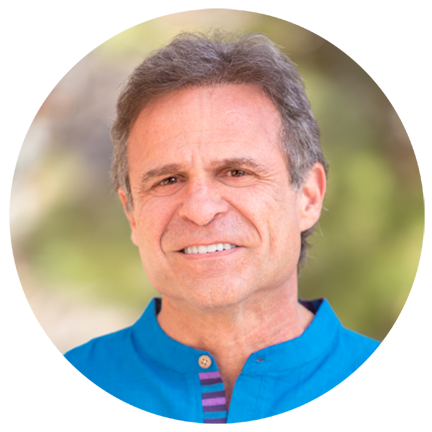No one has a perfect life.
We all incur trauma in one way or another. And whether this happens in early childhood or later adult life, it has the potential to leave an imprint on us. This profoundly affects our worldview and the outcomes of our relationships. Humans are very adaptable, and you may live day to day without giving much thought to what happened at a much earlier point in your life. But sometimes all it takes is one triggering event to unearth a whole history of unhealed wounds.
Abuse results in the development of core beliefs that tell us we’re not safe. This creates hypervigilance and a cynical view of the world. And that, in turn, affects all of our relationships – most importantly, our relationship with ourselves.
If you’ve been living with the limitations of these beliefs, you’re probably aware that you want something more for yourself. You may even feel called towards a meaningful purpose in life. But you may also be unsure of how to get there.
Our integrated, holistic trauma healing program is based on the knowledge of this very human journey. It provides a roadmap from point A to point B, so you can finally move past your trauma and into the life you were meant to live.
Abuse, Trauma and the Strategies We Use to Cope
Abuse is defined as the “cruel, violent, or unfair treatment of someone.” And while we typically think of this in more severe forms as physical or verbal harm, it can also take place in less obvious ways. Narcissistic abuse from a parent or partner, for example, can leave lasting emotional scars.
Other types of abuse include:
- Physical abuse
- Sexual abuse
- Mental mistreatment or emotional abuse
- Exploitation
- Neglect
- Abandonment
When abuse overwhelms our ability to cope, it causes trauma. And trauma is anything that affects us to the degree that we’re unable to process information, function successfully, and feel well. Some people’s trauma symptoms are more pronounced and are diagnosable as PTSD. But whether or not your symptoms are that severe, you likely know that something is going on if you’re caught in cycles of depression, anxiety, and existential crises that you can’t seem to break free from.
One former client, Amy* describes her experience of living with the trauma of abuse:
“My childhood sexual trauma made me feel like I was crazy. It made me feel extremely depressed. I had severe anxiety. I just really felt like I couldn’t function on a daily basis. It was really difficult to find hope in even being alive.”
For many, addictive behaviors like drug and alcohol use, disordered eating, compulsive sex, and codependent relationships become a way to cope. And while each of these offers the promise of feeling good, however momentarily, the reality is that they only create more problems.
These behaviors are driven by deeply held beliefs about ourselves. And until these are addressed, it’s very hard to sustain long-term recovery from addiction, depression, anxiety, PTSD or other symptoms of abuse-related wounds.
Abuse Develops Negative Core Beliefs
Everything we do throughout each day is based on a belief, whether we consciously know it or not. And these beliefs are a result of our past experiences. They affect how we perceive the world, the types of people and experiences we attract in our lives, and the stories we tell ourselves about it all. But the catch is, most of them are unconscious. That is, we’re not aware of the beliefs that are driving our behavior, much less where they come from.
Abuse has a significant impact on what we believe about ourselves. If you were abused as a child, for example, you didn’t have the capacity to make sense of that behavior. Instead, it’s likely that you internalized it and interpreted it as something wrong with you. Which of course, there isn’t. But these false perceptions of ourselves can follow us throughout our lives. We carry them into our relationships and let them filter our experiences – until we come to realize that something needs to change.
Beliefs resulting from trauma often tell us that we’re unsafe, not enough, fundamentally flawed, or deserving of poor treatment. We might become hopeless and believe that things in life will never work in our favor. And we might have a very difficult time trusting others, or even ourselves. Furthermore, the less aware we are of these negative core beliefs, the more power they have over us.
How Our Triggers Call Attention to Soul Sickness
Triggers are often grouped together in the psyche, so it’s not uncommon for one spiraling thought to lead to another. This is how one seemingly benign occurrence can snowball into a crisis that’s impossible to ignore. What’s interesting about this is that it draws our attention to what’s been living in the shadows, beneath our awareness, for much of our lives. And this process is often a necessary part of your ability to know and realize yourself. That’s right:
Your soul will manufacture crises to get attention.
Shutting Down Disconnects Us from Life
When you experience unspeakable harm, numbing out becomes a survival mechanism. “I was left with all the emotions that I had suppressed since I was five years old, and it caused me to go into a downward spiral,” says Amy. “I attempted suicide once, and basically had no hope to live any longer.”
But while cutting ourselves off from our feelings may help us avoid pain, it also cuts us off from engaging with life. As Amy says, “When I first got to The Sanctuary I was very numb, I was closed off, I really wasn’t in touch with my emotions. I used to suppress all my emotions. And I never realized that suppressing the negative also suppresses the positive.”
Healing the Wounds of Abuse
The patterns we develop as a result of abuse are often deeply entrenched and hard to let go of. After all, they’ve been protecting us for so long. But at some point, you know something has to change. Amy recalls:
“I hit a breaking point where I needed to find something or somewhere to heal, because I always knew that I was put on this Earth to do something bigger and better. But, being lost in my depression, I just honestly felt like that wasn’t possible.”
If you feel the same, we want you to know that it is possible not only to heal from the trauma of abuse but to use your healing journey to find and fulfill your purpose on Earth.
At The Sanctuary, we operate a unique program that’s very effective for healing trauma. In fact, we understand unresolved trauma as the underlying cause for all of the issues that people come to us for. We use a holistic approach that looks at your entire being to help you understand and work through your trauma. And it starts by addressing your stories and core beliefs.
“Now, I feel completely different because I know there’s nothing wrong with me. I’m not my trauma. I don’t identify with my trauma. It happened, but the beauty in it is there are so many gifts that I got to learn about myself. And I learned to love myself through going through the hard stuff, doing the shadow work, and really digging deep. For me now, I feel like I have a full range of emotions. I can feel everything and I feel it so deeply.”
Reconnect With Yourself at The Sanctuary and Move From Surviving to Thriving
At The Sanctuary, we take a comprehensive approach to healing that uses a wide range of modalities to treat all aspects of you. Our clinical team looks at psychological issues and neurochemistry, and can holistically evaluate and revise the medications you’re taking. Our brain restoration program uses supplement protocol, nutrition, and IV drip therapies to improve aspects of your neural health that are depleted from stress. Movement therapies and bodywork help you release trauma from the body, where much of it is stored. And energy medicine techniques clear imprints of trauma from your personal electromagnetic field so that they no longer affect you energetically.
All of this takes place on our beautiful grounds, where you have a chance to calm your spirit and reconnect with nature. We look at you as a full person in order to heal the trauma as it lives in your body, mind, soul, and spirit.
Rehab isn’t just about fixing your symptoms. This healing journey is an opportunity to realize your potential and live your life with intention. Amy shares her confidence and passion for life after graduating from our trauma healing program:
“I’m really excited to feel like I found my soul’s true calling and that I can listen to myself and trust myself. I’m actually am grateful to be alive. I feel excited to wake up in the morning, I don’t feel so cloudy in my head. My anxiety is almost non-existent. What I feel most differently about is, I actually found myself. I know who I am, I know what I want in life, I know how strong I am. I know that I can persevere and that I’m made to heal and help other people.”
Find out how strong you are with our journey of empowerment. Contact us today to learn more.
Read More about Soul Sickness and Core Wounds in our 5 part Series.
Soul Sickness and Core Wounds, Pt. 1: Abandonment
Soul Sickness and Core Wounds, Pt. 3: Betrayal
Soul Sickness and Core Wounds, Pt. 4: Defectiveness
Soul Sickness and Core Wounds, Pt. 5: Separation
He is the Founder, Administrator, Counselor at the Sanctuary at Sedona. He has a BA in Political Science and is currently Senior teaching staff at Four Winds Society, an international school of energy medicine. His credentials also include being an Ordained Minister; a Certified Shamanic Breathwork® Facilitator; a Founding Member Society for Shamanic Practitioners; a Member of Association for Comprehensive Energy Psychology; a Member of the National Institute for Holistic Addiction Studies. [email protected]

